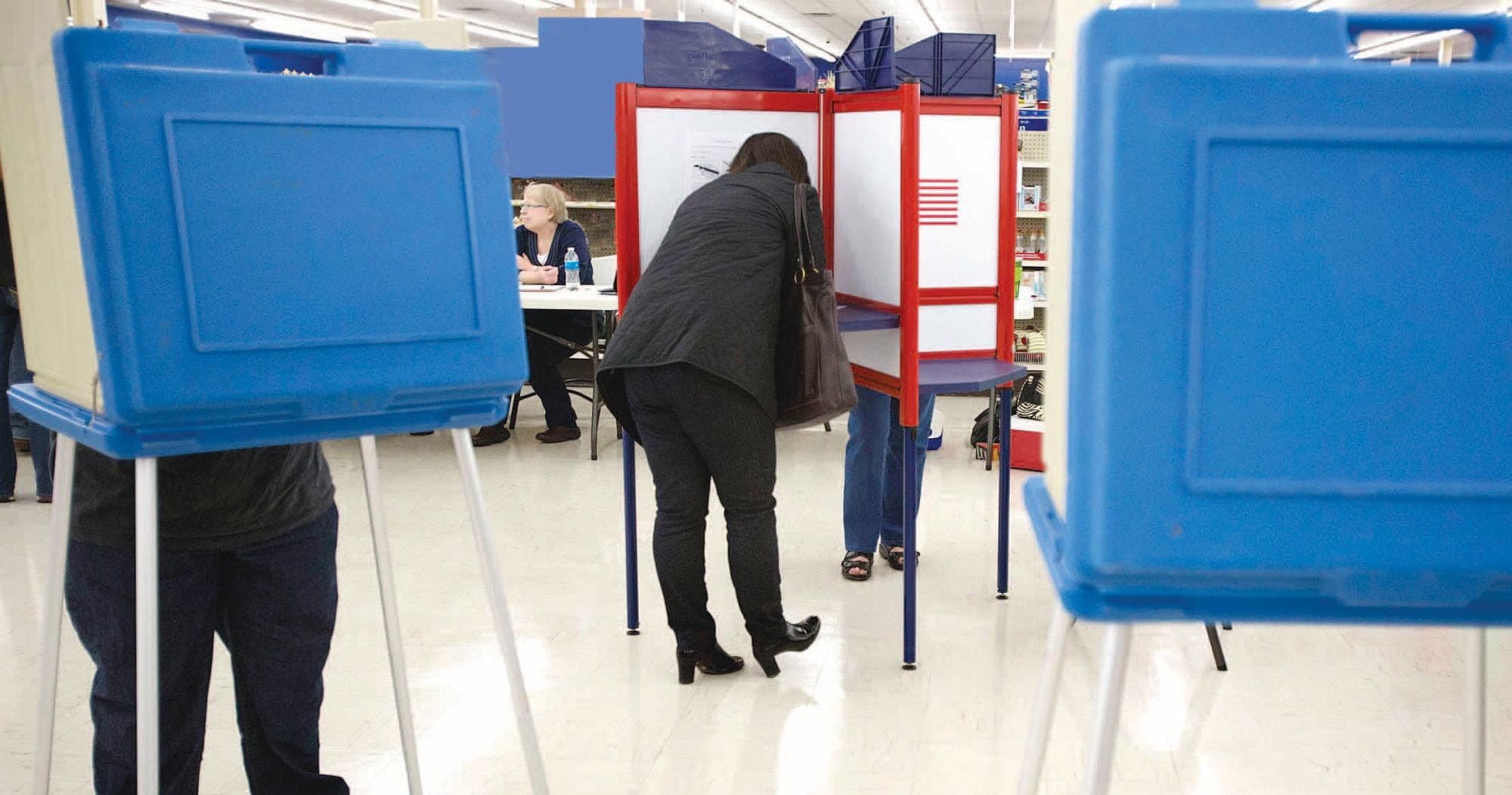Bill Designed to De-Politicize Virginia's Top Elections Job Runs into Partisan Trouble

Photo Credit: County of San Mateo / Flickr
A bill that would strip Virginia governors of their ability to handpick a party-loyal elections commissioner was approved with a unanimous vote in the state's House but has run into trouble in the state Senate.
Virginia's Commissioner of Elections is the head of the state's Department of Elections and is considered Virginia's top elections official. Under current law, the sitting governor has the power to appoint someone to this position and all members of the State Board of Elections.
State law requires the governor to appoint at least two members of the opposing party to the board. Susan Beals, the current commissioner, was appointed by Republican Governor Glenn Youngkin in 2022.
HB 742, sponsored by Republican Del. Israel D. O'Quinn, would change Virginia election law to require a supermajority vote (4 out of 5 members) from the State Board of Elections to appoint a new elections commissioner.
This means, no matter who is governor, Democratic and Republican members of the board would have to agree on an appointment.
If a bipartisan choice is not selected, the existing commissioner would be reappointed depending on confirmation from the Virginia General Assembly. If the position is vacated, the commissioner's duties would fall to the department's director of operations.
The bill comes in the midst of mounting concerns over partisan influence in election administration, which has been the primary driver of election integrity issues since the 2020 elections -- both in terms of how elections are administered and who has the power to challenge or stall election results.
Accusations of partisan influence in elections administration have come from both sides of the political aisle in Virginia. Virginia Mercury reports:
"Last year, Democrats accused the Youngkin administration of playing politics by erroneously removing thousands of eligible voters from the rolls and ending Virginia’s participation in a multi-state voter roll maintenance program that had come under fire from right-wing “election integrity” activists. A local GOP official also accused Youngkin of pressuring the department to intervene in a dispute over how Republicans would pick their nominee in a competitive state Senate race.
In 2016, a Republican lawmaker called on former Gov. Terry McAuliffe to fire then-Elections Commissioner Edgardo Cortes over alleged partisan bias, and a legislative review two years later found the department had an “environment of open support for one party over the other” during the McAuliffe years."
Beals testified in favor of HB 742. “I believe this group is most well-suited to pick the next elections commissioner of Virginia," she said. The League of Women Voters supports the bill. It also received tremendous bipartisan support in the state House, passing 99-0.
Democratic State Senator Schuyler VanValkenburg raised concerns this week over how realistic it is to think Republicans and Democrats could agree on who should run elections.
“Why should we believe that the group that’s in the minority is going to step out?” VanValkenburg said. “If it’s a 4-1 vote to elect a commissioner, that one person in the world we’re living in now could face a lot of pressure politically and otherwise.”
And what pressure does the current commissioner of elections face being appointed by the governor? Especially "in the world we're living in" when elected officials question election results just because they don't like them or outright call for results to be overturned?
Even Beals somewhat admitted to the current political pressures that exist under Gov. Youngkin. “Right now, I’m appointed by the governor,” she said. “He is my boss.”
The US has the only developed democratic system in the world that gives two private political parties as much control over administering the very election in which they compete. The umpires calling the balls and strikes are the teams playing in the game.
Or another way of looking at it is one of the teams playing gets to decide who umpires the game -- depending on who is winning more at the time. It's winner's advantage.
If elected officials are committed to the fair administration of elections, then there is no reason why they can't agree on the person who runs elections being someone who holds no allegiance to the interests of either side. “I don’t think it’s far-fetched to think that you could have a 5-0 vote,” said O’Quinn.
But this is if elected officials are truly interested in and committed to nonpolitical and fair administration of elections.
 Shawn Griffiths
Shawn Griffiths



